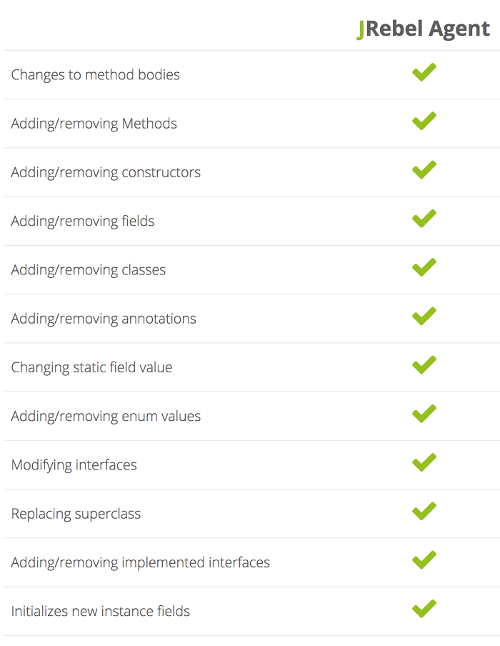

#Jrebel version code#
The name stands for Dynamic Code Evolution Virtual Machine. In the case of DCEVM / Hotswap Agent, this is the DCEVM part. Suffice to say that it takes a special version of the JVM to be able to do this. What goes on exactly with lists, tables and references in the inner workings of the JVM is highly technical stuff and to be honest, I haven’t really looked into it.


In order to make the reloaded class totally replace the originally loaded class in the JVM, all kinds of updates must be made to the metadata that your JVM keeps track of for loaded classes. When you edit your Java code and let your IDE recompile the affected sources the changes are picked up and the changed classes are reloaded into the JVM, while the process using those classes remains running. The tool monitors your classpath looking for changes in classfiles. Here is a quick comparison based on my own research: ChangeĪdd, remove and modify static field value It can do most of the things JRebel does, is open source and free as in free beer.
#Jrebel version how to#
In this article I will introduce DCEVM / Hotswap Agent and explain how to use this toolset. It works great, and there is no doubt that this is a very useful weapon in the Java developers arsenal. There are some third party tools available that can interfere with the inner workings of the JVM and make it possible to reload classes with a much broader range of changes. If you add, remove or rename methods, change their arguments, or make other changes to your code the JVM has no way of reflecting those changes in the loaded classes of the running process. The capabilities of your standard vanilla JVM are limited to being able to hotswap the code for a method body and not much else. The Java JVM supports hotswapping out of the box but in a very modest way. It works by recompiling and reloading the changed classes. It allows you to see the effect of code changes while the application remains up and running. Hotswapping Java code is a technique that can save a lot of programmer down time when you’re working with humongous web applications that take forever to start up.


 0 kommentar(er)
0 kommentar(er)
